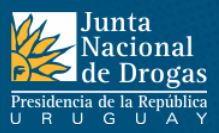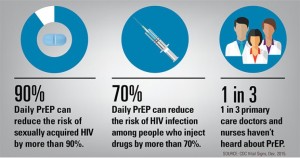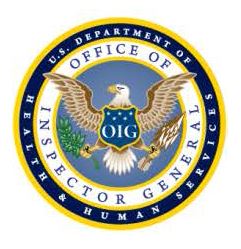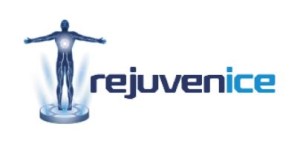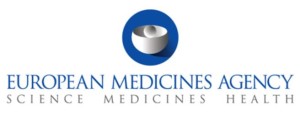- Three types of marijuana to hit Uruguayan pharmacies in 2016 (reuters.com)
Uruguayans will be able to choose from three varieties of state-sanctioned cannabis when marijuana starts being sold in pharmacies in the small South American country next year…Each variety will have different levels of...tetrahydrocannabinol and cannabidiol..."There will be three options with indications about the effects of each that point beginners toward starting with the lowest level" of THC...Uruguay became the first country to legalize the cultivation and distribution of marijuana in late 2013, aiming to wrest control of the trade from gangs while regulating and taxing its consumption…Authorities have developed traceable, genetically-distinct plants to ensure they do not leave Uruguay's borders or end up on the black market…The government estimates registered marijuana users will be able to buy the drug from pharmacies in mid-2016, when the country's two licensed producers start selling their first commercial load of about four tonnes…Authorities are also working with companies interested in exploring the possibility of exporting medical marijuana to the United States and Europe...
- CDC calls for increased PrEP awareness for high-risk patients (drugstorenews.com)Daily Pill Can Prevent HIV (cdc.gov)
New data from the Centers for Disease Control and Prevention has the organization urging providers to education themselves about the potential of pre-exposure prophylaxis drugs (PrEP) that can significantly reduce the risk of contracting HIV…Though the once-daily pill —which was approved by the Food and Drug Administration in 2013 and marketed as Truvada (tenofovir/embtricitabine) — can reduce risk of HIV transmission through sexual contact by 90% and the risk among injected drug users by 70%, new information shows that one-in-three primary care doctors and nurses haven’t heard of PrEP…“PrEP isn’t reaching many people who could benefit from it, and many providers remain unaware…“With about 40,000 HIV infections newly diagnosed each year in the U.S., we need to use all available prevention strategies.”
- Why FDA Should Oversee Laboratory Developed Tests (blogs.fda.gov)The Public Health Evidence for FDA Oversight of Laboratory Developed Tests: 20 Case Studies (fda.gov)Framework for Regulatory Oversight of Laboratory Developed Tests (LDTs) DRAFT GUIDANCE (fda.gov)Theranos isn’t the only diagnostics company exploiting regulatory loopholes (theverge.com)
Today FDA is issuing a report that illustrates the real and potential harms to patients and to public health from certain laboratory developed tests (LDT) – tests that are designed, manufactured and used in a single laboratory…But times have changed. LDTs have increased in complexity and availability and are now frequently used to diagnose common, serious medical conditions, including cancer and heart disease, with potentially greater impact on patients...LDTs are still under a general policy of enforcement discretion. That means they have rarely undergone FDA review to determine whether they are accurate, reliable, and provide clinically meaningful results...FDA’s own adverse event reporting databases rarely capture problems associated with a faulty LDT...the Agency was able to pull together 20 case studies based on information available in the public domain that show how lack of LDT oversight may be causing or is causing significant harm to patients…FDA has proposed to step up our oversight of LDTs. We issued a draft guidance last year which we’re currently working to finalize, that proposes to phase in enforcement of premarket review requirements for LDTs. FDA oversight would help ensure that tests are supported by rigorous evidence, that patients and health care providers can have confidence in the test results, and that LDTs have more scientifically accurate product labeling.
- Can Hospitals Waive The Costs of Certain Drugs? (bna.com)OIG Policy Statement Regarding Hospitals That Discount or Waive Amounts Owed by Medicare Beneficiaries for Self-Administered Drugs Dispensed in Outpatient Settings (oig.hhs.gov)
Federal laws and regulations generally frown on hospitals providing Medicare patients with free or discounted medications, but a recent policy statement from the OIG appears to buck that trend. From now on, hospitals won’t face any administrative sanctions for waiving or discounting self-administered drugs (SADs) that are either administered or ingested in an outpatient setting and aren’t covered under Medicare Part B…policy statement was prompted by reports that some hospitals were charging Medicare patients for SADs, resulting in financial hardships for the patients. The hospitals believed that the anti-kickback statute required them to bill for the SADs, and at higher rates than patients would receive at retail pharmacies...Many hospitals are already waiving or discounting patient costs for SADs, as Medicare patients can end up paying more for the SADs than they would have if the drugs were dispensed at a retail pharmacy...
- Senators Call on FDA to Allow Certain Canadian Drug Imports (raps.org)
Food and Drug Administration should allow the importation of pharmaceutical products from Canada if they meet certain stipulations, Sens. Chuck Grassley and John McCain wrote in a letter to Health and Human Services Secretary Sylvia Burwell… senators call on FDA to “immediately” certify the importation of prescription drugs
- if they are off patent and are no longer marketed by the drug developer,
- if there are “significant and unexplained” price increases,
- if no direct competitor product is currently marketed and the introduction of a new drug will benefit US consumers, or
- if the drug is “produced in another country by the name brand manufacturer that initially developed the drug or by a well-known generic manufacturer that commonly sells pharmaceutical products in the United States.”
Drugs could also be imported from countries outside of Canada “with similar regulatory regimes related to drug approvals,”…As far as how FDA could go about allowing such imports, the senators point to the Medicare Prescription Drug, Improvement and Modernization Act of 2003 that allows FDA to permit pharmacists and wholesale retailers to import drugs from Canada.
- Nevada issues health guidelines for cryotherapy (hosted.ap.org)Cryotherapy spa reopens; new guidelines revealed (reviewjournal.com)Division of Public and Behavioral Health Cryogenic Chamber Therapy Recommendations (dpbh.nv.gov)
Nevada has created health guidelines for cryotherapy after a Las Vegas spa worker was found dead in a tank that subjects users to subzero temperatures, a treatment that experts say has been growing in popularity but is largely unregulated and whose benefits are not proven…Dr. Tracey Green, the state's chief medical officer, said Friday that the guidelines from the state health department recommend that the machines not be used by minors under 18, those under 5 feet tall and anyone with certain health conditions, such as a history of stroke, high blood pressure, seizures and infections, as well as people who are pregnant or have pacemakers or claustrophobia…The state said it will work with businesses to implement its "expected standards" but there won't be penalties and this doesn't amount to law. Still to be determined is how oversight measures will be carried out to ensure the guidelines will be implemented. The health department has said it will work with other agencies that regulate and license such businesses, including the Nevada Occupational Safety and Health Administration…"We will go back and assist them," Green said of the businesses. "There's not a penalty. It's really about public safety."…The new guidelines ask cryotherapy centers to have nitrogen monitors in the rooms and emergency kits and defibrillators on site. Signs and user waivers that clearly state that the treatment cannot treat illnesses or be used for medical purposes and outline the service's procedures and risks should also be provided…
- FDA Amends Liver Warning Labeling Guidance for Some OTC Drugs Containing Acetaminophen (raps.org)Acetaminophen Guidance for Industry (fda.gov)
Food and Drug Administration…unveiled amended guidance on the liver warnings that must be contained in labels of some over-the-counter drugs containing acetaminophen, saying it will allow manufacturers in some cases to warn patients against taking more than 4,000 mg of acetaminophen in 24 hours… helps to clarify certain cases where manufacturers of internal analgesic, antipyretic and antirheumatic OTC drugs would be able to change liver warnings when the product’s directions for use result in a maximum daily dose of acetaminophen that is less than 4,000 mg for adults… FDA says that the optional statement, “for this product,” from the original warning is intended to help consumers understand that the maximum number of daily dosage units for a product might not reflect the maximum daily dose of acetaminophen… in certain circumstances, despite this optional statement, the wording might be interpreted as indicating that severe liver damage is associated with a total daily dose of acetaminophen that is less than 4,000 mg, which “is not the intent of the regulation.”
- Safer use of medicines by preventing medication errors (ema.europa.eu)Medication errors (ema.europa.eu)Recommendations on medication errors (ema.europa.eu)
European Medicines Agency has published a good practice guide on medication errors to improve the reporting, evaluation and prevention of medication errors by regulatory authorities and pharmaceutical industry throughout the EU…The…guide on medication errors published today complements the guideline on good pharmacovigilance practices…It consists of two parts:
- details how suspected adverse reactions that are caused by medication errors should be recorded, coded, reported and assessed. The goal is to improve reporting and to learn from medication errors for the benefit of public health.
- clarifies key principles of risk management planning in relation to medication errors. It describes the main sources and types of medication errors and proposes options to minimise the risk of medication errors throughout the lifespan of a medicine.
- India’s Supreme Court wants stricter oversight of MSD, GSK HPV clinical trials (fiercepharmaasia.com)
Suggesting that India's chief drug regulator may not be doing enough to protect certain volunteers in clinical trials, the Supreme Court ordered the agency to provide adequate oversight, particularly when drugs to treat the human papillomavirus are concerned…Central to the high court's concerns, it said, were Merck Sharpe & Dohme's Gardasil and GlaxoSmithKline's Cervatrix...The two justices presiding said they were not trying to run the Drugs Controller General of India, but they believed the poverty-stricken and others in trials should be protected at the informed-consent stage when testing HPV vaccines… The court said the procedure should be transparent and patients should be compensated when failures occur.
- CDC is right to limit opioids. Don’t let pharma manipulate the process (statnews.com)
…Americans overdose and die after taking opioid painkillers...people abuse or misuse the drugs…addictions and deaths mount…authorities are struggling to cope…State lawmakers are introducing bills to restrict prescribing…Food and Drug Administration is pushing pharmaceutical companies to develop more tamper-resistant products…the most sweeping initiative comes from the Centers for Disease Control and Prevention, which has prepared preliminary prescribing guidelines for primary care physicians…call on doctors to prescribe opioids only after other therapies have failed…there is considerable opposition to the guidelines…critics…say the CDC guideline process was flawed and, as a result, some patients will be denied much-needed pain relief.

